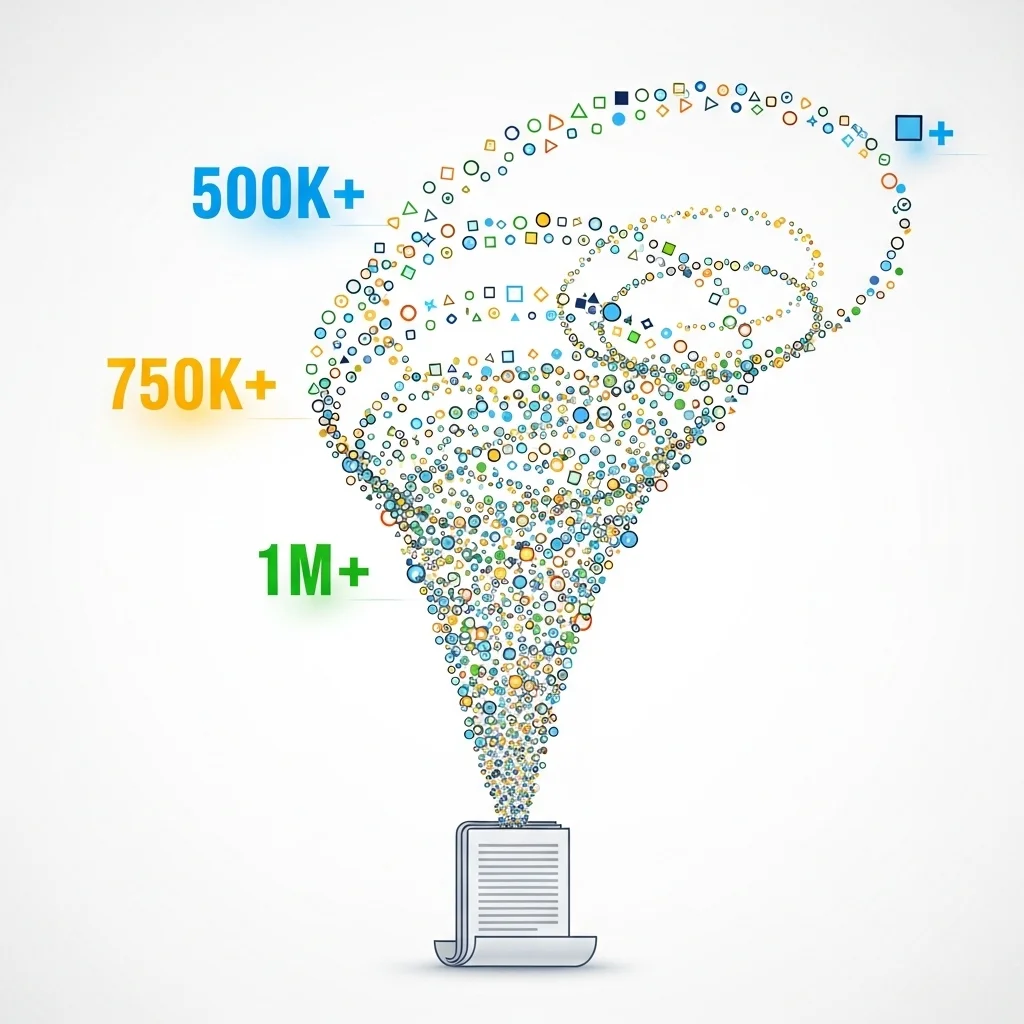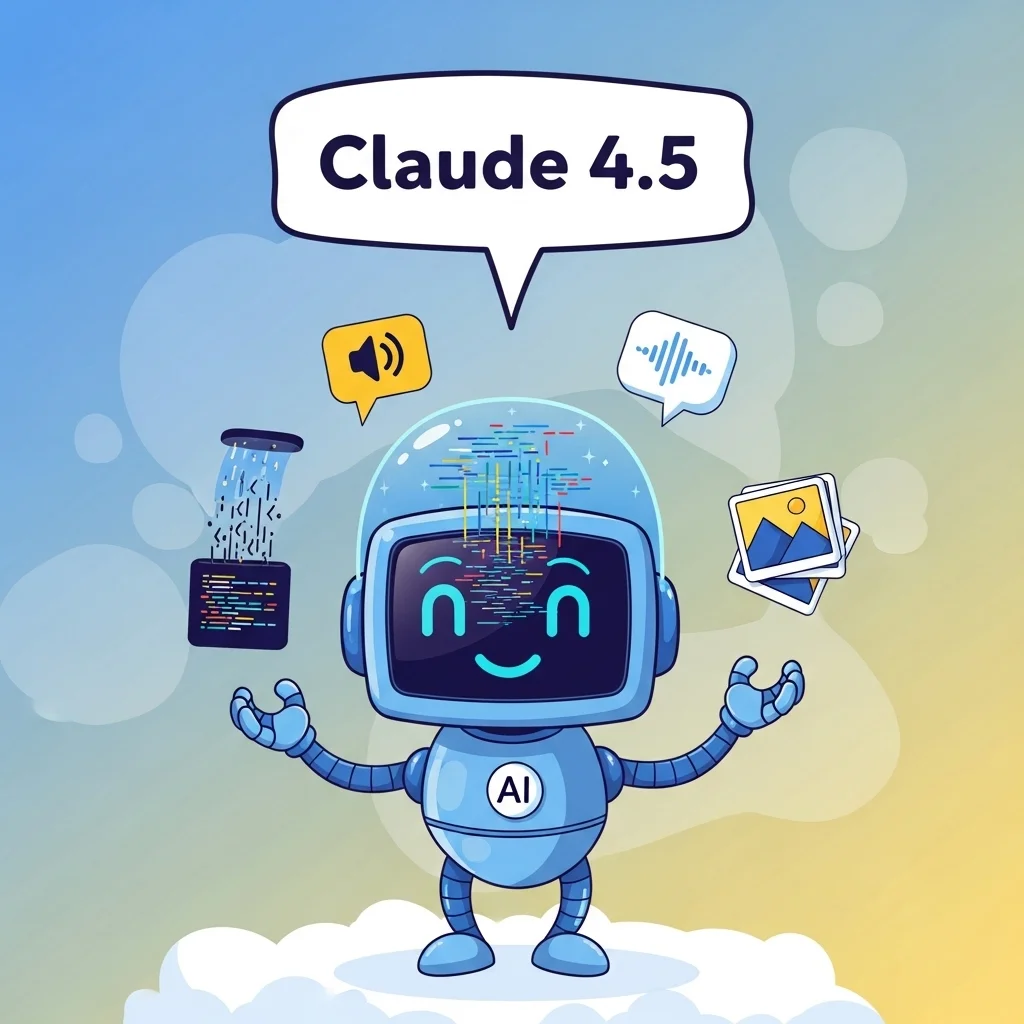Anthropic postponed the launch of Claude 4.5, but the rumour mill is in overdrive. In this blog I walk you through the latest hints, predictions and speculation, and reflect on what this next step could mean for developers, businesses and our own Mind platform.
A little more patience... but what if?
Claude 4.5 promises greater reasoning power and a monster-sized context window, yet remains backstage for now.
Extremely long context (500k+ tokens)
Enhanced reasoning and chain-of-thought
Multimodal input (image + speech)
Native "memory" for team workflows
Better code generation and explanations
Security upgrades to prevent jailbreaks
Action points from this blog:
How you can prepare your prompt strategies right now
Where this touches Livewire components in the TALL stack
Why a model-agnostic platform (like Mind) guarantees a quick switch
What truly matters?
Three key questions before you integrate
Context explosion
Anthropic is reportedly testing context windows above 500,000 tokens. Think entire codebases or due-diligence files in one prompt. But latency and cost remain the big caveats.
Reasoning power
Leaked internal benchmarks suggest that 4.5 scores up to 15 % better on Big-Bench-Hard than 4.1. In practice that means a lower risk of hallucination on complex chains of questions, which is gold for compliance chatbots.
Multimodal + Memory
Screenshots showing a "Memory" toggle in an internal Claude build are circulating. Combine that with image input and you get an AI colleague that remembers designs, diagrams and progress between sessions.
How we are preparing
Step 1 - Test prompt redesign
We are refactoring existing Opus and Sonnet prompts into chunks of about 20k tokens so that scaling up to 4.5 will be plug-and-play.
Step 2 - Data security in order
Our approach: a sandbox environment plus synthetic data to validate new model output without risking customer PII.
Step 3 - Monitoring the latency budget
Pro tip: start measuring response times with 200k-token prompts (Gemini 2.5 or Grok 4 Fast) now and define an acceptable SLA window.
Step 4 - Mind switch ready
With Mind we connect models through a single driver interface. We are already writing dedicated adapters for the expected Claude 4.5 API changes, including memory flags.
Step 5 - Stakeholder demo scripts
Pay special attention here: set up demo scenarios that make the new 4.5 advantage tangible, for example end-to-end code review or full-document summarisation.
Curious how to get your roadmap ready for Claude 4.5 or just want to brainstorm about AI switch strategies? Let me know in the comments - I would love to hear your ideas and challenges!
Claude 4.5 at a glance
The rumour source
Recently I stumbled across a series of social posts where developers claimed they had seen "a stealth model with 4.5 capacity". In my experience these leaks are seldom far from the truth. A Substack newsletter this week sums up the consensus: it is an in-between generation, not a full Claude 5, with a focus on reasoning power and context.
Delay = fine-tuning for safety
Interestingly, Anthropic links the delay mainly to safety checks. Given the recent zero-click prompt-injection issues at rival models, that makes sense. Enterprises want robust guardrails before trusting sensitive data.
Comparison with the competition
GPT-5-o test builds aim at reasoning plus tool usage
Gemini 2.5 Flash excels in price per 1k tokens
Grok 4 Fast dazzles with 2M context and low latency
If 4.5 combines those elements - long context, good price-performance and stronger safety - a serious challenger is waiting in the wings.
Why context really matters
From code review to due diligence
Our experience shows that project teams often stumble over context limits. A 150k-line Laravel monolith simply will not fit inside 200k tokens if you also add instructions. Feed 500k tokens and "explain the whole repository" suddenly becomes realistic.
Impact on TALL stack development
Imagine a Livewire component automatically flagged for performance bottlenecks by Claude after analysing the entire PHP and Blade call stack. With a larger context window the AI can spot relationships between back-end, front-end and database queries in one go.
Cost perspective
Of course, more tokens mean more money. With GPT-4-o I see prices rise exponentially above 100k tokens. If 4.5 can deliver that cheaper - Anthropic hints at more efficient sparsity routing - this could be the commercial game changer.
Multimodal + Memory: hype or game changer?
Memory for teams
We are seeing LLM vendors experiment with session memory that is shared per workspace. The interesting part is that screenshots suggest Anthropic is adding a toggle allowing admins to switch memory on or off. That reassures compliance teams while still letting dev teams build history.
Image and speech in one API
Our client cases show that users expect to upload a photo, give spoken feedback and get an instant summary. If 4.5 delivers native multimodality, we can keep a single unified flow in Mind instead of separate calls to vision or speech endpoints.
Real-world example
An interesting development I am seeing: in an experiment with Gemini 2.5 we uploaded a construction drawing and calculated a bill of materials in real time. If 4.5 combines that with stronger reasoning, we could immediately validate against building regulations.
When is Claude 4.5 expected to launch?
No one outside Anthropic knows the exact date. Social channels suggest "within a few weeks", but the release has already been pushed back twice because of extra safety tests.
How much will 4.5 cost compared with Opus 4.1?
Official prices are not yet available. Rumour has it the price per 1k tokens will be around 25 % higher, but with a dramatically larger context window the cost per insight could actually drop.
Will 4.5 have higher latency because of the larger context?
From our experience with similar models there is always some extra processing time. However, Anthropic is testing a new router architecture that only processes the relevant tokens, so latency should stay comparable.
Will existing Claude API integrations continue to work?
Yes, but expect new parameters such as memory and vision mode. We are building adapters with feature flags in Mind so developers can toggle them with ease.
Is multimodality safe for privacy-sensitive images?
From our experience with medical data: use on-premise pre-anonymisation or encrypted upload. Wait for official Anthropic guidelines on GDPR compliance.
How does 4.5 compare with open-source Llama 4?
Llama 4 is strong in fine-tuning but lacks Anthropic's scale and safety training. For enterprise-critical processes we expect 4.5 to be preferred unless data sovereignty carries more weight.
Is 4.5 going to take our dev jobs?
In our experience it removes boilerplate, but creative problem-solving and architectural choices remain human work. Think co-piloting, not replace-piloting.
Can I benefit right now without waiting for 4.5?
Absolutely. Optimise your prompts, experiment with 200k models and build a model-agnostic architecture. Then you can switch later without refactor headaches.


